Top 5 Accounting Software

Any data related to day-to-day financial operations, such as expenses, receipts, ledger, etc., will be stored, organized, and kept for asset management, and analytics through a cloud-based operating application called Accounting Software.
Even before the digital era “No doubt” accountancy always played a crucial role in keeping and organizing expenses, revenue, profit, debt, credit, loans, etc to control and analyze the outflow and inflow of the cash or assets into heavy registers.
Today, with the advancement of technical computer language, and micro advancement of CPU components things are organized into the form of data in enormous quantities without affecting the data accuracy (unless it’s a human error), time, and storage capacity.
Thus, this attracted a new era of business typhoons which reluctantly integrated technology into the world of accounting for the accuracy of data, & automation (reducing the cost of labor). Therefore, accounting software has become an integral part of company management.
Even simple Accounting software comes with an integrated wide range of operations for instance HR management, professional service automation, ERP automation, omnichannel commerce, etc. According to some leading market insight firms, the future course of the accounting software market and the results were quite astonishing.

Market Insight of Cloud-Based Accounting Software
A recent report from “OpenPR”, released on 07-18-2024 suggested that the worldwide Accounting Software market was valued at $11.58 billion in 2019. And it will increase with an est. of $21.25 billion by 2027. The CAGR suggested a positive growth rate of 7.9% from 2019-2027. Another report from “ORBIS Research” suggested global-key important leading companies in the developing Cloud Accounting Software market were Quickbooks, ETAR, Dynacom, Zoho, and Xero.
Whereas some well-known data insight firms like GGI (Global Growth Insight) and some IT, sector firms concluded that due to the impact of COVID-19, a drastic change in the implication of cloud-based applications (cloud accounting software) and digital integration into commerce, management, and manufacturing have been seen.
Well according to the report of GGI, the current market value of cloud-based accounting software is $14183.89 mn. This will increase to $20962.99 mn by 2027 with an increasing CAGR rate of 6.73%.
Due to its nature of resilience and adaptability, data security measures, real-time updates, and easy-to-use U/I with unparalleled accessibility. Cloud Accounting software became an essential investment in paperless environments among various business sectors. Especially in small and medium-sized enterprise sectors (SMEs) up to large-scale enterprise sectors.
Therefore let’s dive into the best 5 cloud-based accounting software available in the market that is dominating the competition. Implementing cloud accounting software in the business will be a great start to Introducing the first digital solution investment in the earlier stages of your company. Thus, let’s start.

List of Top 5 Accounting Software
Quickbooks
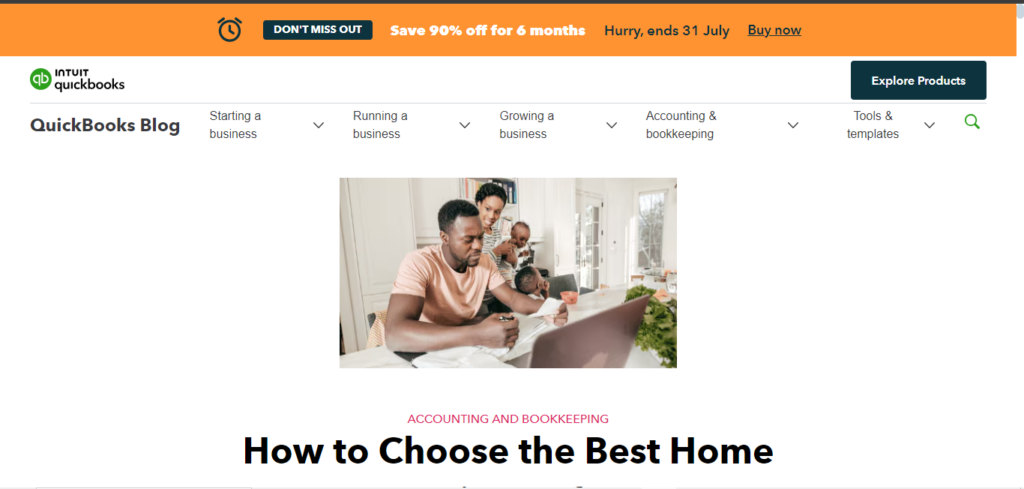
This is one of the most preferred cloud accounting software in the market. Quickbooks offers a range of product features for instance advanced accounting, virtual bookkeeping, payroll, pay contract, timekeeping, etc. Other than this Quickbooks can also handle day-to-day management of invoices, expenses, tax deductions, e-commerce, tracking bills, etc.
Quickbooks accounting software is a resilient cloud application. The major advantage of this software is that This software can be implemented in different economic sectors. For instance Non-profit, manufacturing, professional, legal, etc. This software is specifically designed especially for the SME sector. Therefore, it holds a surprising popularity among small-scale owners and entrepreneurs.
Quickbooks offers a platform for the automation of bills, real-time accessibility, and customized invoice templates. It has an easy-to-use U/I thus, any beginner can drive this software without any hindrance or complexity.
ETAR (Extensive Tool for Accounting And Reporting)
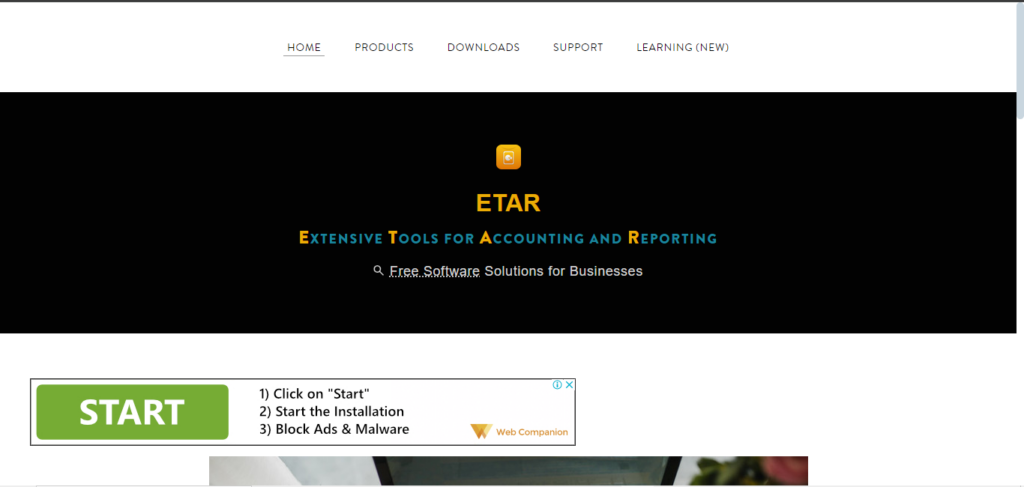
It is another favorite tool among small-scale businesses. ETAR is a 100% cost-free double-entry accounting system. It is designed to support the sales modules for instance maintaining and linking sales records, receipts, etc. ETAR is user-friendly and secure, provides a wide range of data accessibility, etc.
Dynacom
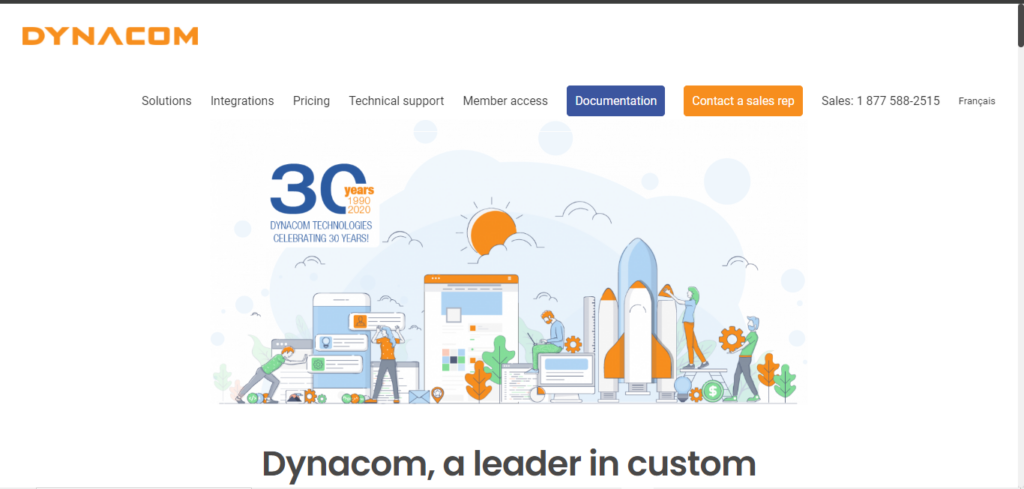
This is another accounting software that provides sophisticated controls for accounting operations, optimizes the inventory for cost reduction, and manages automated timely payrolls, bills, etc. Dynacom is dynamic and user-friendly and can be implemented in any economic sector for instance e-commerce, manufacturing, retail, etc.
Zoho
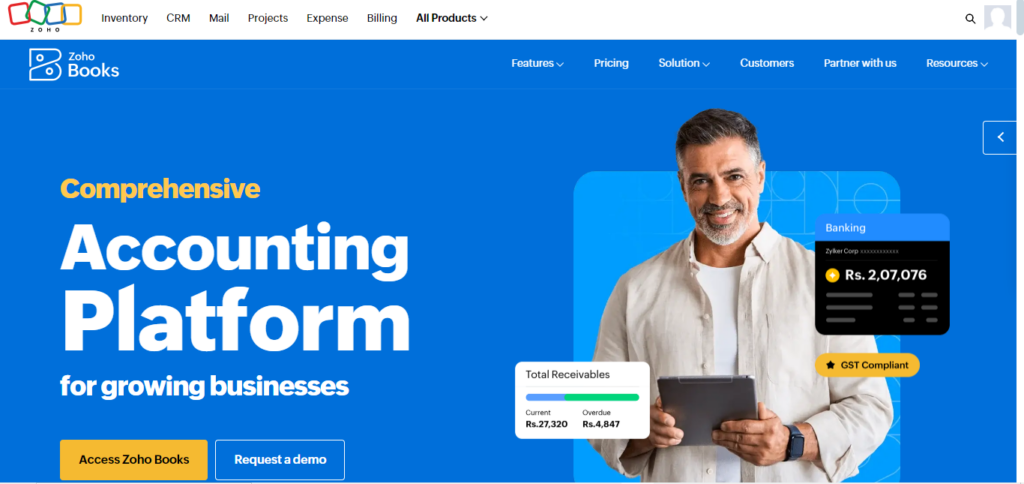
Zoho is very suitable for medium to large-scale enterprises because it offers and can operate in a dynamic nature business. For instance Sales, Hr management, Accountancy, etc. to streamline a complex business structure. Zoho has great features for data security because it has to handle large sensitive data of firms.
Xero
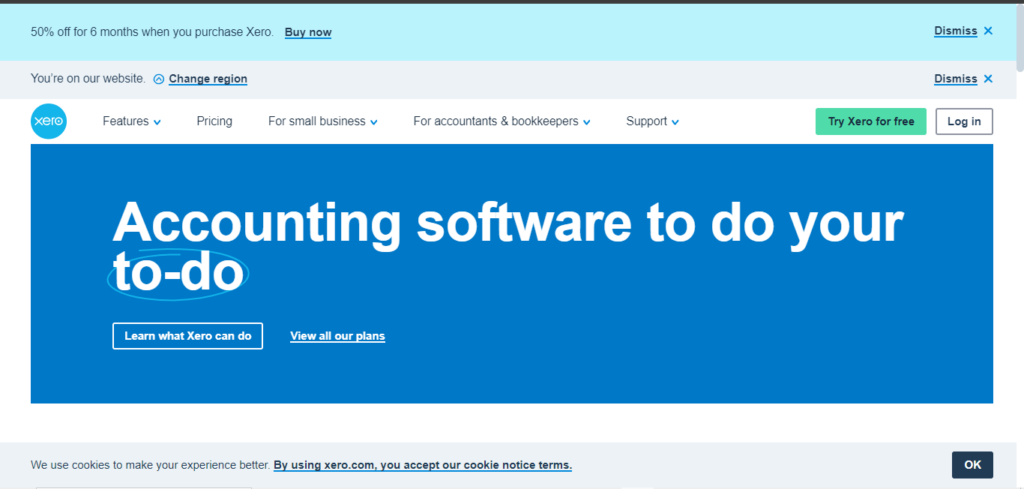
This cloud accounting software is a sophisticated software designed to automate day-to-day activity for instance paying indirect expenses, miscellaneous expenses, updating tasks, records, etc. Xero will be an excellent product for those whose businesses are in earlier stages because its U/I is simple and can perform dynamic activities.
FAQ
1. What are the advantages of cloud accounting software?
The advantages of cloud accounting software are as follows;
- Enhance data accuracy
- Declutter the excessive data
- Automation of daily financial transactions
- Flexibility of Data accessibility
- Easy to handle Bookkeeping and ledgers
- Offer as a multifunctional tool to manage data
2. What are the key factors responsible for the upsurge of Cloud Accounting Software?
The key factors are the rise in demand for a paperless environment, accuracy, digital automation, and the low cost of labor for handling financial data. To create an efficient and effective management with an accessibility of data.
Also, COVID-19 is considered one of the major factors that surge the implementation of digital solutions for a smooth workflow of business structure.
The rapid development of AI is another factor in the continuous implementation of accounting software in industries because it helps to save business costs and cut the labor force.
3. Why is Data Security important in Accounting software?
The rapid development of the internet, AI, and Computing formulations creates a dent in the market of cloud-managing software, which opens a lot of room for improvement. People use more mobile applications to access different types of applications and companies find it a profitable sector.
Where they continuously push mobile-friendly apps for acquiring more personal data, thus it applies to Acc. software also. Therefore it makes them vulnerable to leakage of sensitive financial data. Thus, data security is important in accounting software.
